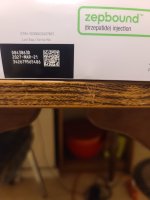In my 38 years of being a DVM and using a variety of peptides for animal health throughout my career, hydrolysis and degradation has always been a concern.But, I am always learning. Heck I have been on this forum for over a year and still an Apprentice. Lol
* I realize that B-12 is not a peptide, hence why I stated peptides and “Solutions”. B12 should store it at room temperature
between 59°F and 85°F otherwise high rate of degradation occurs.
Peptides, especially in solution, can be sensitive to heat, leading to degradation through various mechanisms. While short peptides may refold after heat exposure, prolonged or high-temperature exposure can cause irreversible changes like hydrolysis of peptide bonds, denaturation, and aggregation.
Mechanisms of Peptide Heat Degradation:
- Hydrolysis:
The most common pathway for peptide bond cleavage. Heating in aqueous solutions accelerates hydrolysis, breaking the peptide chain.
- Denaturation:
High temperatures can disrupt the secondary and tertiary structures of peptides, especially those with well-defined structures. However, many short peptides can refold upon cooling.
- Chemical Instability:
Heat can trigger other chemical reactions, including oxidation, deamidation, racemization,and isomerization, leading to peptide degradation.
- Physical Instability:
Changes in secondary structure, adsorption, aggregation, and precipitation can also occur due to heat exposure.
Factors Affecting Peptide Heat Stability:
- Temperature:
Higher temperatures accelerate degradation. Short-term exposure to room temperature (up to 30°C) is generally tolerable, but prolonged exposure can cause issues.
- pH:
Changes in pH can influence peptide stability and the rate of degradation reactions.
- Peptide Sequence and Structure:
The amino acid composition and the presence of specific secondary structures affect heat stability.
- Solution Conditions:
Factors like the presence of salts, detergents, and other additives can affect peptide stability.
Practical Considerations:
- Storage:
Dry peptides are generally stable at room temperature for short periods, but long-term storage is best at -20°C or lower, according to NIBSC.
- Handling:
Reconstituted peptides in solution should be stored appropriately and used promptly to minimize degradation.
- Exposure to Heat:
Peptides in solution should ideally be kept below 25°C for extended periods. Short-term exposure to room temperature may be acceptable, but prolonged exposure should be avoided, according to Intercom.

